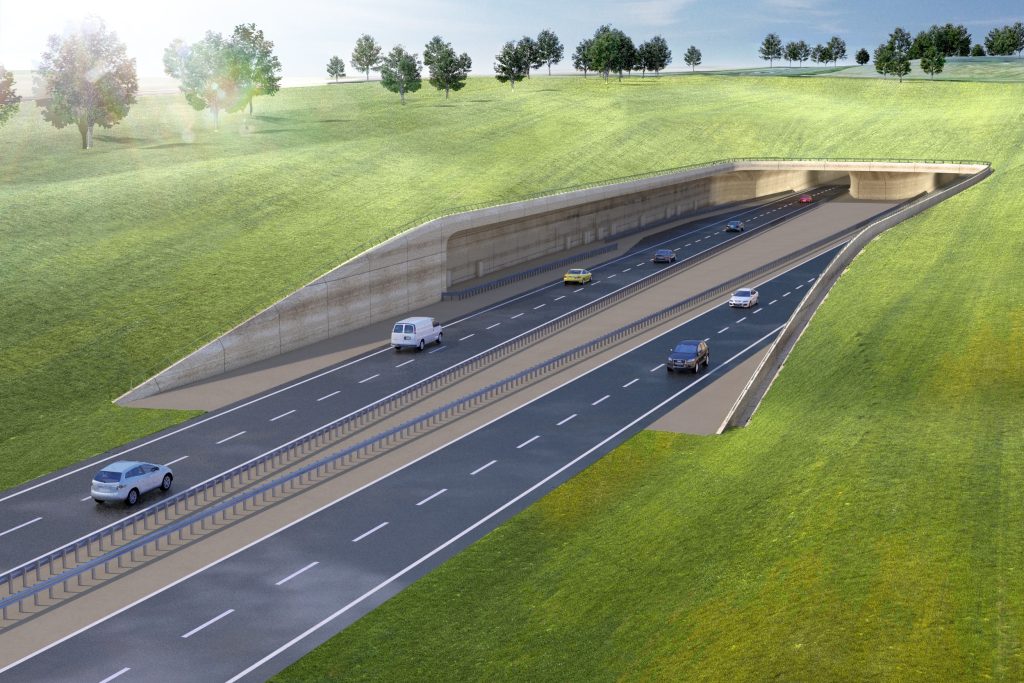“Much of the change needed to deliver net zero for the transport sector is already underway and makes sense even without the global imperative of climate change.” [Transport Decarbonisation Plan]
The Stonehenge Tunnel: “We’re now a step closer to solving the longstanding issues of congestion and delays on the existing A303, improving journeys for all our customers and bringing much-needed relief to local communities.” [National Highways]
“This decision flies in the face of the evidence on climate change and the recommendations of the Climate Change Committee, and will devastate the World Heritage Site.” [Transport Action Network]
.
There’s been quite a fanfare about Devon’s rail lines getting a government boost following on from the cancellation of HS2’s northern stretch, with specific promises of government support for the Tavistock to Plymouth rail reinstatement and both East Devon’s and Honiton’s MPs claiming credit for the extra funding for Cullompton railway station.
Meanwhile, The Great South West (representing business, councils, universities and Local Enterprise Partnerships) is promising clean energy opportunities to unlock thousands of jobs, Exeter University has been part of a scheme to attract a multimillion pound investment to develop a hydrogen supercluster, and the Western Gateway Partnership (comprising South Wales and West of England leaders) have created a vision for improved services.
To give some national context, in July 2021, the government published its transport decarbonisation plan – producing its paper “Decarbonising Transport – A Better, Greener Britain“, the first chapter declaring:
Much of the change needed to deliver net zero for the transport sector is already underway and makes sense even without the global imperative of climate change.
Two years later, and Greg Marsden, Professor of Transport Governance at Leeds University, considers that the “DfT assumptions look well off course“:
Last month a Freedom of Information release was finally made by the Department for Transport with details of the calculations underpinning the Government’s transport decarbonisation plan. It followed Professor Greg Marsden having fought long and hard to get the information. From an initial look at the material, we asked him : what does it tell us?
… What this all makes clear is that we are currently appraising our major infrastructure investments on the basis of a set of assumptions about future traffic levels and carbon emissions which are not even close to being net zero compliant. It seems we are living in an alternative transport universe... That means we need to revisit the basket of policies on the table – in terms of both behavioural change and our ability to deliver technological change at pace. We are already behind the game and the implications of a past decade of inaction means the Carbon chickens have well and truly come home to roost.
Others are pointing out similar issues, with campaigners claiming that the current “road-building spree will derail the UK’s net zero targets“:
Officials had to edit the department’s “transport decarbonisation plan” to add 26 megatonnes of carbon emissions because of an oversight regarding polluting hybrid vehicles, and projections for an increase in van traffic… Campaigners criticised a new policy by the DfT which requires decision-makers to ignore the negative climate impact of road-building and traffic but to give weight to tree planting around schemes as a nature-based solution to climate change. It says an increase in emissions from road schemes is “not a reason to prohibit” their approval.
The government recently blocked the release of the carbon emission figures behind its transport decarbonisation plan. It blocked academics from seeing the figures, which include data on how much car use would have to be reduced in order to reach net zero commitments. Campaigners say meeting these legally binding targets will be possible only with a drastic reduction in motor traffic, which could make many new road projects financially unviable.
In the summer, the A303 Stonehenge Tunnel was given planning approval, with very different opinions on its impact:

National Highways chief executive Nick Harris said: “It means we’re now a step closer to solving the longstanding issues of congestion and delays on the existing A303, improving journeys for all our customers and bringing much-need relief to local communities. “The investment, along with other improvements along the A303, will help to boost the South West economy, improve journey reliability, remove the sight and sound of traffic from this very busy road and return one of our most important World Heritage Sites to something like its original setting.”
Transport Action Network roads and climate campaigner Rebecca Lush said: “Just as the Climate Change Committee has recommended that new roads should be reviewed, Mark Harper seems to be in denial by giving the go-ahead to the Stonehenge dual carriageway through the World Heritage Site. National Highways admit the scheme would increase carbon emissions by 2.5 million tonnes over its lifetime at a time when we need to rapidly reduce emissions. This decision flies in the face of the evidence on climate change and the recommendations of the climate change committee, and will devastate the World Heritage Site.”
…